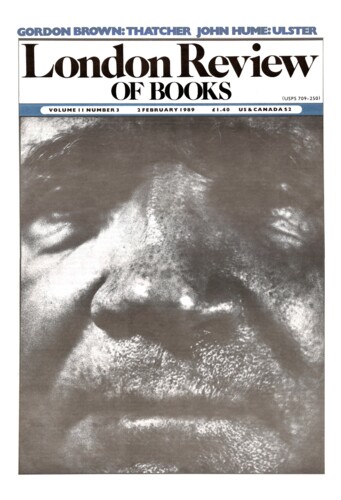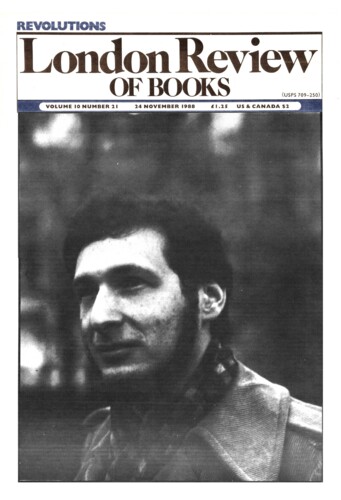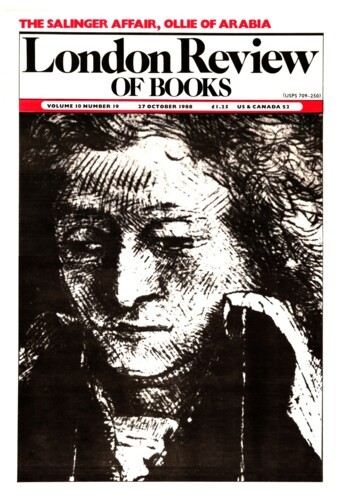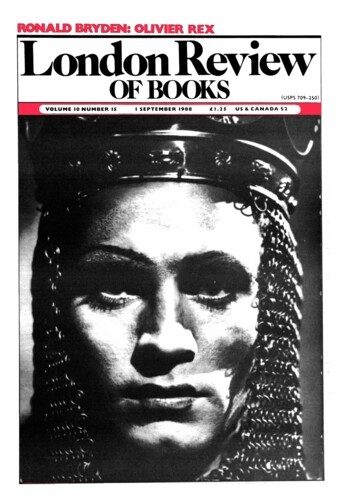Family Romances
Anthony Thwaite, 2 February 1989
Candia McWilliam’s first novel, A Case of Knives, won the Betty Trask Award last year. I expect I am wrong in persistently remembering this as a prize for something called Romantic Fiction; I believe I am right in thinking that the rubric was extended to include the words ‘or traditional’. The formidable young McWilliam doesn’t seem to me to fit comfortably under either label. A Case of Knives was a dazzling, burnished, stilt-walking stylistic exercise, like that of a very clever student who had been nourished on a forced diet of John Cleveland, George Barker (The Dead Seagull) and Craig Raine, and who had once heard the plot of a novel by Iris Murdoch. The novel’s characters were indeed Romantic, if by that one means fabulous, fanciful, whimsical, high-flown, etc, as under Roget 515: Lucas Salik, Anne Cowdenbeath, Cora Godfrey and the rest seemed precocious fictions, made palpable only by the finely-honed language in which they expressed themselves (‘Language is a case of knives’): ‘I was driven home by a man with no hands, my heart belonging to a man who was a mender of hearts, and within me was growing another heart, not mine at all, but never quite not mine. These grotesque anatomical tmeses touched my dreams through a thin sleep.’ Grotesque tmeses appeared to be what Candia McWilliam was good at.





